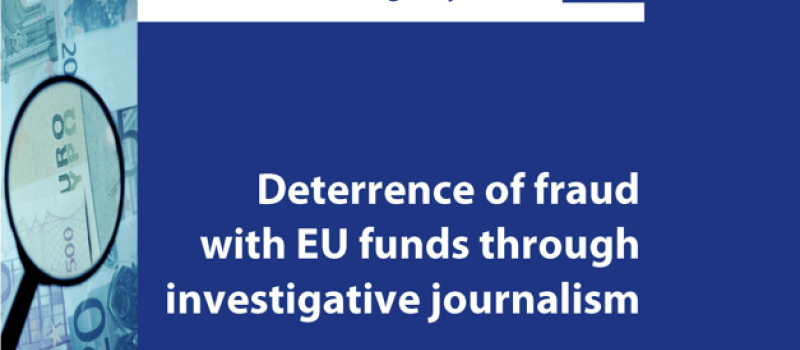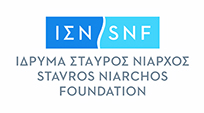
BRUSSELS - A voyage of discovery through the European Union to explore the current state of investigative journalism. A search for answers to the question of whether robust, cross-border investigative journalism into fraud, mismanagement or human error in the spending of European money can contribute to improved European governance. During the last six months, this journey became a full-time occupation for investigative journalist Margo Smit and six of her colleagues.
The idea for the study came about after Bart Staes, Green Member of the European Parliament and deputy chairman of the antifraud committee, heard about the fate of Slovakian TV journalist Martina Kubaniova. She was reporting on the financial mismanagement of European social funds and the involvement of politicians. It ended up costing her her job with the public broadcasting company. The study will be presented at the European Parliament on October 9, 2012.
Were you shocked or pleasantly surprised by the state of investigative journalism into European affairs?
Smit: “I definitely wasn’t pleasantly surprised. To be honest, I had low expectations. For a variety of reasons, there is a very mixed picture across the European member states when it comes to investigative journalism in general and particularly on the subject of Europe.”
Did you notice any rift between northern and southern Europe, as in the debate on the Euro crisis?
“No. Some countries have a long tradition of investigative journalism, which is totally lacking in other countries. The UK has this kind of tradition and in Bulgaria there are many excellent in-depth articles. Broadly speaking, there are three factors that determine whether or not good investigative journalism exists in a country. Determination: it is all about individual journalists who are prepared to invest in in-depth investigations, often from a position in which they themselves are vulnerable. The second is Prioritization: a willingness on the part of the media to say ‘this is an important investigation or theme we should invest in.’ Finally, there is Cooperation: journalists who work together across borders. This is not something that necessarily comes naturally to journalists, but it does achieve better results. Ultimately, these three factors are essential if investigative journalism is to be successful.”
Were the journalists, media managers and policymakers surprised when you arrived to see them?
“Yes, very surprised. Most of them were interested in the subject and keen to find out about the state of investigative journalism in Europe. But my question as to what they themselves are doing in that area was met with a long period of silence, usually followed by very little. There is a consistent line in the explanation given for this: they don’t see these European stories, they don’t have the knowledge, the data is hidden, there is no money, no time and readers aren’t interested... The last of these reasons is very much open to question, because we simply don’t know! If you don’t offer people this kind of journalism, it is impossible to know whether they are interested in it or not. In the UK, there is a great appetite for stories about Europe, although most of these have a strong Eurosceptic slant.”
There is very little cross-border investigative journalism in Europe. Why is this?
“It hardly ever happens, because journalists don’t meet each other and there is insufficient data available to compare countries with each other. Where the data is available, as is the case for the distribution of agricultural subsidies on farmsubsidy.org, journalists do find each other! At the moment, this kind of cross-border cooperation is based far too much on coincidental and individual initiatives. European institutions can encourage this cooperation by providing easy access to data.”
Does the EU have a duty to stimulate its own countervailing power?
“Yes. As well as providing financial support to journalistic initiatives, the EU can make data available, providing citizens with better information through the media. This can serve as an antidote to the increasing lack of trust. Of course, the journalists themselves should take the initiative. Some say that governments should not get involved, because information then quickly loses its credibility. But personally, I believe that if you ensure that there are sufficient firewalls to guarantee independent reporting, the EU can play a useful role. For example, the French online newspaper Mediapart receives government support but is one of its biggest critics.”
So European institutions should welcome investigative journalism on Europe?
“Without a doubt, because it can contribute to improved governance. This may be awkward for public administrators, but as they say, ‘if you can’t stand the heat, stay out of the kitchen.’ I did notice that some European services and institutions, such as the antifraud office OLAF, really want to provide greater openness, but at other levels, people refused even to answer the telephone.”
Does investigative journalism help to prevent fraud and corruption?
“Ideally, it can have an impact, although perhaps not directly. People who wish to perpetrate wrongdoing, will always do so. It is still usually a case of retrospective reporting. However, monitoring by the media can contribute to a climate that combats fraud more effectively. It would be wonderful if that could happen at the European level, but it will take some time. An important aspect in this is for journalists to show that people cannot get away with fraud and that stolen taxpayers’ money is returned.”
This interview was published in the September 2012 edition of The Free Pr€ss, a publication of the European Greens.









